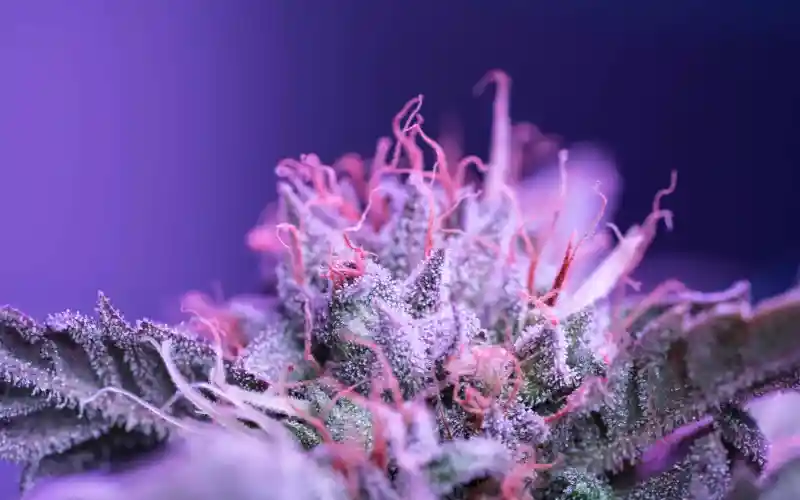The Minnesota Office of Traffic Safety (OTS) announced its pilot project to launch a cannabis saliva test for determining impairment in drivers.
According to OTS Director Mike Hanson, the test is being designed to determine recent impairment. “We’re not looking to find somebody who used 10 days or 14 days ago. We’re looking for somebody who used within the last couple of hours,” Hanson explained.
The saliva test would screen for a total of six substances, such as cannabis and opioids, using both the SoToxa Mobile Test System and Dräger DrugTest 5000. Both devices have already previously been tested in other states.
The state’s 320 Drug Recognition Evaluators (DREs), who have been trained to recognize signs of impairment due to substances other than alcohol, will be given saliva devices for the program. A majority of the DREs are local law enforcement officers, but one-third are state troopers. “We’re going to get a good sampling not only in metro areas, but also in the greater Minnesota areas that will give us an idea of how prevalent drug impaired driving is on our roads,” Hanson continued.
In practice, if an officer comes across a driver who appears to be impaired, they will ask them to perform field sobriety tests, followed by swabbing their mouth, if they consent. “That swab is then inserted into a cartridge, and that cartridge then is inserted into the instrument. Roughly five minutes later, you will get your result,” Hanson said. A news report from Fox 9 explained that individuals won’t be arrested or have their licenses revoked while participating.
The pilot program will help the department gather data by using participants who provide voluntary saliva samples. The goal is to determine the presence of one of the six substances, not the varying levels of a substance within a person’s body. “If you have Delta 9 in your system, that tells the officer [the driver] used recently, and that very likely is the cause of their impairment, or part of their impairment if they’re using other things in in conjunction with that cannabis,” Hanson said.
Data shows that between 2013-2017, there were 8,069 incidents involving intoxicated drivers, and between 2018-2022, that number increased to 15,810.
The goal is that OTS will gather data and submit it to the Minnesota Legislature in fall 2024, with the goal of asking lawmakers to update state law to allow the devices to be used by law enforcement to arrest impaired drivers.
In Michigan in 2017, a similar Oral Fluid Roadside Analysis Pilot Program was launched with the use of a device called an Alere DDS2, which tests for amphetamine, benzodiazepines, cannabis, cocaine, methamphetamine and opiates. Between 2019-2020, Phase II of the program was launched. Similar roadside saliva tests have been implemented in Alabama and Kansas as well.
Following adult-use cannabis legalization in Canada in 2018, the country altered its laws to permit the use of roadside saliva drug tests with the Dräger DrugTest 5000. In 2019, the Canadian government approved the SoToxa Mobile Test System for use by law enforcement.
The Victorian Parliament in Australia recently approved a bill to address and implement a medical cannabis driving trial in October 2023 as well. “This bill will allow us to deliver a world-leading research trial into medical cannabis and driving, enhancing our understanding of how cannabis affects driving behavior and informing future reform,” said road safety minister Melissa Horne.
Victoria was the first Australian province to legalize medical cannabis six years ago. “The reality is patients continue to wait. Medicinal cannabis has been prescribed since 2016, that’s a long time for patients to have to wait for a resolution,” said Australia MP Rachel Payne. “A medicinal cannabis patient should be treated like any other patient who is prescribed medicine by a doctor who also provides appropriate advice about when that patient is safe to drive.”
However, there are concerns regarding the efficacy of these roadside drug tests. In 2019, a Vancouver-based attorney found that the Dräger DrugTest 5000 was not a reliable way to determine impairment, claiming that it was producing false positives for people who had only consumed CBD. “We found there was a retention period of half an hour. It was still found in the mouth even though there were no lingering effects in the body,” said attorney Kyla Lee.
Other complaints included that the device wasn’t performing properly in cold weather. “We need to put more effort in this country into finding a device that can tell the difference between something that’s impairing a person and something that’s merely present in their system,” Lee explained.
In September of this year, an article published on the American Council on Science and Health website explained how these drug tests are still not up to par. In a recent study conducted by researchers at the University of California, San Diego, determined that roadside saliva tests in theory are useful, but not accurate. “One court concluded that ‘there is as yet no scientific agreement on whether, and, if so, to what extent, these types of tests are indicative of marijuana intoxication,’” researchers wrote. (Full Story)

